The Southeastern Pennsylvania Symphony Orchestra returns with music from Grammy-nominated Philadelphia composer and SPSO LIVEstream! host Kile Smith and music from his award-winning Vespers newly arranged for and commissioned by the SPSO. The concert includes several overtures by the composer that was proclaimed to be the greatest by Mozart, Beethoven, and Haydn – George Frideric Handel! The performance culminates with world-renowned Romanian Cellist Ovidiu Marinescu and the endless charm of Haydn’s graceful Cello Concerto.
Saturday, 6 February 2021
7:30 p.m.
SPSO LIVEstream!
I. Steht auf, ihr lieben Kinderlein!
(Get up, dear children, see what cheers!)
II. Nun danket all und bringet Ehr
(Now raise your thanks up to the Lord)
III. O Süßer Herre Jesu Christ
(O Jesus Christ, Our Gracious King)
III. In dir ist Freude (In Thee Is Gladness)
Mr. Marinescu, cello
I. Moderato (Get up, dear children, see what cheers!)
II. Adagio(Now raise your thanks up to the Lord)
III. Finale:Allegro molto
+ = Southeastern Pennsylvania Symphony Orchestra premiere
Support the SPSO
To make a donation please call 267.217.2273 or donate securely through PayPal by clicking the "Donate" button below.
Watch the performance on YouTube or, you can also view at http://livestream.com/tat/spso-feb-2021

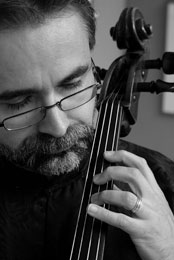
OVIDIU MARINESCU
Cello
Internationally acclaimed Cellist Ovidiu Marinescu is a frequent soloist an audience favorite of the Southeastern Pennsylvania Symphony Orchestra. As one of the outstanding musicians of his native Romania, Mr. Marinescu has performed at Carnegie Hall, Weill Hall, Merkin Hall (New York), the Great Hall of the Moscow Conservatory, Holywell Room in Oxford, Oriental Art Center in Shanghai, and many other prestigious places. A frequent soloist, he has appeared with the New York Chamber Symphony, the National Radio Orchestra of Romania, Moscow Chamber Orchestra, Newark Symphony, Helena Symphony, Cleveland Philharmonic, Limeira Symphony in Brazil, Orquesta de Extremadura in Spain, and most of the orchestras in Romania. Recent performances include appearances with the Portsmouth and Immaculata Symphonies, Craiova Philharmonic in Romania, Millersville Orchestra, Vanderbilt Orchestra, Independence Sinfonia, a 2-week tour of China and yearly recitals at Carnegie Hall.
As an artist for Parma Recordings, his records have been praised as “bold and expressive” by Gramophone Magazine and “tight, musical, technically virtuosic” (The Whole Note). Mr. Marinescu has more than 15 album releases, including the popular Fiesta Latina, a recording with the Russian Philharmonic Orchestra, the critically acclaimed recording the Bach Cello Suites, released by Navona Records. Recently, his recordings received the Gold Medal at the Global Music Awards and in 2017 was on the Classical Billboard list. Upcoming projects include recordings with the London Symphony Orchestra.
Mr. Marinescu and Maestro Scott have been performing together for decades, and in 2015 they premiered a new work for cello and orchestra by Philadelphia Composer Kile Smith, commissioned by Helena Symphony for its 60th anniversary. Recently, Mr. Marinescu’s online concerts benefited the “The New Music Solidarity Fund” for musicians affected by Covid-19 and have attracted thousands of views and critical acclaim.
Entering his nineteenth season as Music Director of the Southeastern Pennsylvania Symphony Orchestra, Maestro Allan R. Scott has been noted as one of North America’s most dynamic young figures in symphonic music and opera. He is widely recognized for his innovative approach to programming, dynamic vision, and ability to elicit top-notch performances from musicians.
Dividing his time between residences in Helena and Philadelphia, Pennsylvania, the Philadelphia native also marks his eighteenth season as Music Director of Montana’s Helena Symphony Orchestra & Chorale. In addition, he also serves as the Principal Conductor of the Wilmington Ballet Company in Delaware.
Composer Kile Smith’s The Arc in the Sky with The Crossing received a 2020 Grammy Award nomination for Best Choral Performance, and his Canticle with Cincinnati’s Vocal Arts Ensemble helped win the 2020 Best Classical Producer Grammy for Blanton Alspaugh.
Mr. Smith has gained national and international acclaim with commissions from The Crossing, Conspirare, Piffaro, Helena Symphony, Lyric Fest, Westminster Choir College, Mendelssohn Club of Philadelphia, Newburyport Chamber Music Festival, the Pennsylvania and iSing Girlchoirs, Choral Arts Philadelphia, Gaudete Brass, Red Shift, and Cincinnati’s Vocal Arts Ensemble, with major choral works heard in Chicago, Boston, San Francisco, Dallas, Canada, England, and New Zealand.
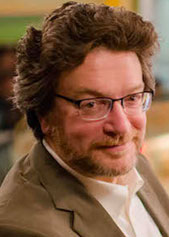
KILE SMITH
Born: Camden, NJ, 24 August 1956
Living: Fox Chase, PA
While completing his graduate studies in composition, Smith worked as a music copyist for the internationally renowned Fleisher Collection of Philadelphia, the world’s largest lending library of orchestral music. He later served as curator for nearly two decades.
In addition to being a fulltime composer, Smith has served as an on-air host for Philadelphia’s classical music radio station and is a contributing editor to an arts and cultural magazine. Dedicated to education, he has taught composition at Cairn University, and was awarded “Alumnus of the Year” by both Cairn University and Temple University.
Smith has worked as composer in residence for several ensembles, and his music has been performed by orchestras and choruses around the world, including the Helena Symphony, Delaware Symphony, Grand Rapids Symphony, Philadelphia Classical Orchestra, Jackson Symphony, Chamber Orchestra of Philadelphia, Lehigh Valley Chamber Orchestra, Virginia Chorale, and the Sofia Philharmonic of Bulgaria, to name a few. He has been commissioned by noted ensembles, such as The Crossing (a professional chorus based in Philadelphia), Orchestra 2001, Philadelphia Sinfonia, Newburyport Chamber Music Festival, members of the Philadelphia Orchestra, and the renowned early music ensemble Piffaro.
Many composers often have a musical epiphany that seems to set free an overwhelming desire to write music. At the age of 17, Smith heard a recording of Brahms’ German Requiem, and he knew then he wanted to become a composer. Beginning with an interest in the music by American legend Aaron Copland, Smith “has a lifelong love of early American music,” explains Smith, especially for the “shape-note, gnarly raw harmonies.” He also admits that the music of the Lutheran church also shaped much of his composing, although he did not realize that until later in his career. Recently Smith’s admiration for 20th century composer Paul Hindemith and his skills for composing counterpoint (and who wrote an authoritative book on counterpoint) have “unlocked counterpoint for me; I now love, love counterpoint,” proclaims Smith.
Parallel Events / 2021
(as of January 2021)
Joseph R. Biden becomes the 46th U.S. President
Kamala Harris becomes the first woman and first person of color to be U.S. Vice President
Height of year-long COVID-19 global pandemic
Chorale Fantasias from Vespers
Chorale Fantasias are four movements from Vespers, a work for chorus and Renaissance band. This new orchestral suite is scored two oboes, bassoon, two horns, and divided strings.
Duration: 10 minutes
Chorale Fantasias from Vespers was commissioned and premiered by the Southeastern Pennsylvania Symphony Orchestra in 2021.
Relationships matter. For more than two decades, Kile Smith and Conductor Allan R. Scott have been friends and colleagues. Recently, Smith has served as the host for the SPSO LIVEstream! – the live concert broadcasts that have streamed online during the 2020-2021 Season with no audience in the concert due to the global pandemic.
As part of this relationship, the Southeastern Pennsylvania Symphony Orchestra commissioned Smith to incorporate his music into one of the broadcasts. Smith writes:
"These are four instrumental-only movements from Vespers, my 2008 work for choir and Renaissance band inspired by the music of the Lutheran Reformation. The movements were re-ordered from the original Vespers… and are chorale fantasias – a form taking many shapes by composers using Lutheran chorales for works such as organ preludes."
The four movements are based on Lutheran hymn tunes from 1530-1630, and while sacred in origin, Smith orchestrates and decorates them in a way that gives them a dance-like character, thereby creating sense of sacred and secular simultaneously.
The original award-winning Vespers itself is a masterpiece, but so unique that it would be difficult to replicate for non-Renaissance instruments. Kile Smith, however, by re-thinking the four instrumental-only movements from Vespers has created something nearly entirely new, and rewarding for the listener and performer. More importantly, this reimagined work allows his creativity to matter even more when we all need a sense of something sacred during a time when the secular life has been a struggle.
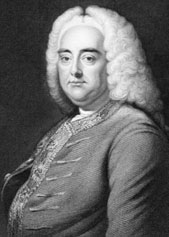
GEORGE FREDERICK HANDEL
Born: Halle, Germany, 23 February 1685
Died: London, England, 14 April 1759
Parallel Events / 1724, 1738, 1741, 1748
J.S. Bach’s St. John Passion premieres (1724)
Philosopher Immanuel Kant is born (1724)
King of Spain abdicates thorn to his 16-year-old son
King George III of United Kingdom and British General Charles Cornwallis are born (1738)
Height of the reigns of Louis XV in France, George II in Great Britain, and Frederick II in Prussia (1741)
First American magazine is published (1741)
American General Benedict Arnold is born (1741)
Composer Antonio Vivaldi dies (1741)
Ruins of Pompeii are rediscovered (1748)
War of Austrian Succession ends (1748)
Overtures to Operas & Oratorios
Handel scored all of these Overtures for two oboes, bassoon, continuo (performed by cello, bass, and harpsichord), and divided strings.
Handel’s operas for the English stage received mixed reception by the London audiences, and ultimately his last opera, Deidamia, flopped, closing in 1741 after only three performances. The newly prosperous London middle class had grown tired of the elaborate productions of Italianate operas and were hungry for oratorios – un-staged operas and oratorios were usually performed in the vernacular, dispensed with costumes and staging, and dramatized mostly Old Testament narratives familiar to 18th century audiences.
Depressed by the commercial failure of his opera, Handel, now in his 50s, reluctantly turned to the more popular oratorio form. The ink was barely dry on his final opera when Handel began to compose Messiah in August of 1741. The fact that the entire composition took only 24 days to compose is no surprise, for Handel traditionally wrote operas and oratorios with Mozart-like speed.
The text for Messiah consists essentially of selected passages from the Bible and from the English Prayer Book Psalter. Despite popular belief, Messiah takes little interest in the details of Christ’s life but concentrates rather on the idea of the Messiah as a redeemer for mankind. The Gospel story is related but not in a sacred narrativeas in the Passion oratorios by Bach. Handel insisted that the Messiah was a dramatic work, just like every previous oratorio he composed – that despite its subject, Messiah was a theatrical composition and not a sacred work.
Yet Messiah was not a typical oratorio. Unlike Handel’s previous works in the genre, Messiah was not based solely on the lives of Old Testament figures like Saul, Solomon, or Samson. Nor does Messiah have a plot featuring named characters in a series of incidents; rather, Messiah reflects the humanistic spirit of the age rather than conventional religious teachings. A blockbuster work for the theatre – a work about a superhuman figure that saves mankind.
Although today Messiah has become a Christmas staple, its first performance took place in Dublin, 13 April 1742 during Holy Week (a traditional time for both sacred and secular works to be premiered). The Dublin debut was a great success, but the English premiere of Messiah in
London at Covent Garden in March 1743 failed. Religious conservatives in London were puzzled by Handel’s choice to present the work not in church but in a theatre – as one Puritan critic remarked, the most “profane of all places.” Once the work was performed for a London charity and the London audience began to grasp Handel’s intent, Messiah grew in popularity and has never fallen from favor since. Messiah continues to be the most performed work ever written despite that it is over 250 years old!
With the success of Messiah creating sensation with English audiences, Handel continued composing oratorios performed in English, and almost always using biblical figures. In 1748 he composed Solomon based on Israel’s King Solomon and taken from the Bible’s First Book of Kings and Second Book Chronicles. For each of the three parts of the work, Handel also composed an instrumental introduction, the most famous of which is the introduction to Part III. Simply title “Sinfonia,” it has become known as “The Arrival of the Queen of Sheba” today. The instrumental work is a dance that captures the state visit from the Queen of Sheba to Solomon’s kingdom. Set for a pair of solo oboes accompanied by strings, the introduction to the final section of Solomon was composed to depict the luring sound of music, the desire for military glory, and the despair of an unhappy lover, and a storm which turns to calm – all within three minutes. Most of all the Sinfonia to Solomon celebrates Israel under the wise ruler of Solomon as a Golden Age of peace, happiness, and prosperity.
Handel ended his career as a true entertainment icon, having written 42 operas, 29 oratorios, numerous sacred and secular choral works, and many works for orchestra and solo instrument. Handel’s celebrity status was so great that in his own lifetime there was a statue erected in his honor in London in 1738!
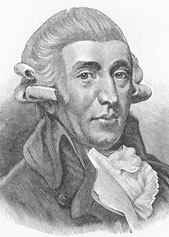
FRANZ JOSEPH HAYDN
Born: Rohrau, Austria, 31 March 1732
Died: Vienna, Austria, 31 May 1809
Parallel Events / 1765
Great Britain imposes first tax on American colonies with the Stamp Act
Daughters of Liberty, the first society of working women in America, is formed to boycott British goods
King of England William IV, inventor of the cotton gin Eli Whitney, and English scientist James Smithson (name sake of the Smithsonian Institute) are born
Cello Concerto No. 1 in C major
Haydn’s Cello Concerto was originally scored for solo cello, two oboes, two horns, and divided strings.
Duration: 22 minutes
As with most concertos, it is the great virtuosos who inspire composers to write them: Franz Clement's abilities prompted Beethoven’s violin concerto, Brahms wrote his violin concerto for the great Joseph Joachim, and today, musicians such as cellists Yo-Yo Ma and Mstislav Rostropovich have catalyzed countless composers to write for the solo instrument accompanied by orchestra.
Few composers over time have scored cello concertos, perhaps not appreciating the instrument’s full potential and indeed, there have been far fewer virtuoso cellists. Neither Mozart nor Beethoven composed a concerto for cello. Of the three and one half cello concertos written by Haydn, one was never finished, one was believed to be composed by a contemporary of Haydn, and one no one knew existed until the latter half of the twentieth century. Mainly because Haydn’s cataloguer, Anthony van Hoboken, overlooked the earlier concertos of the composer, the first two cello concertos were not identified with Haydn until recently.
Haydn composed his first cello concerto for the principal cellist of his orchestra at the Esterházy estate. Unexplainably, the Concerto seemed to disappear with no knowledge that the work even existed. While the Concerto predates his second cello concerto by about twenty years, the Cello Concerto No. 1 in C major demonstrates Haydn’s witty lyricism and mastery of composing for solo instrument. Haydn always maintained a sensitivity to the abilities of the soloist, either instrumentalist or singer. Haydn’s Cello Concerto No. 1 also serves as a bridge between the Baroque style of playing (the era of J.S. Bach and Handel) and the emerging structure of the Classical period that Haydn would come to represent. Within this structure and limitations he imposed, Haydn still crafted a brilliant concerto that is equally as prolific, exciting, and fun as any of his symphonies.
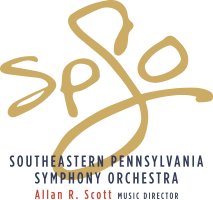
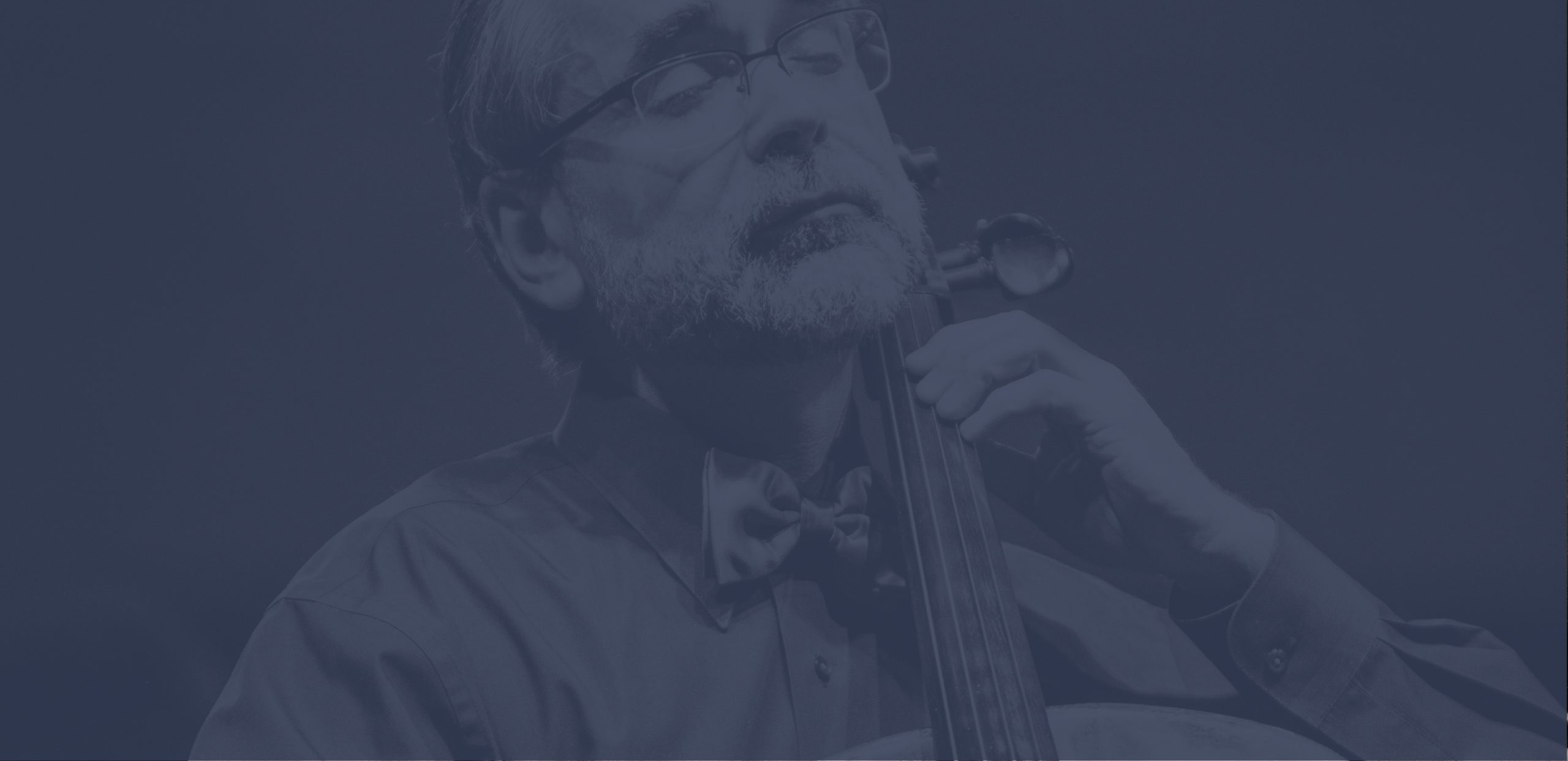

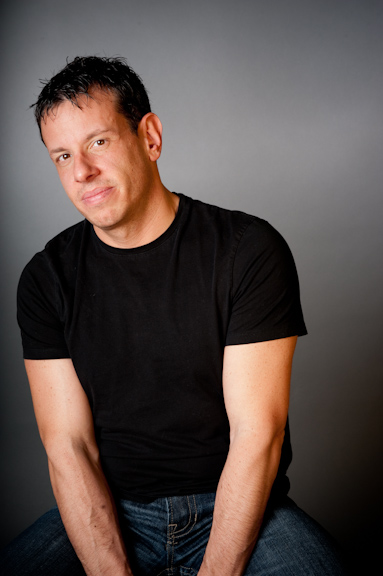
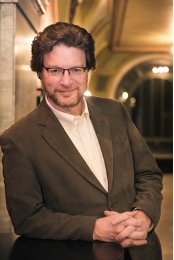
0 Comments